Sponsored by the Applied Linguistics and TESOL program and several other generous entities at Teachers College, Columbia University, the 11th annual meeting of The Language and Social Interaction Working Group (LANSI) was held on October 13 and 14, 2023, in New York City. The conference brought together new and established scholars of language and social interaction from near and far for a weekend of dialogue and connection.
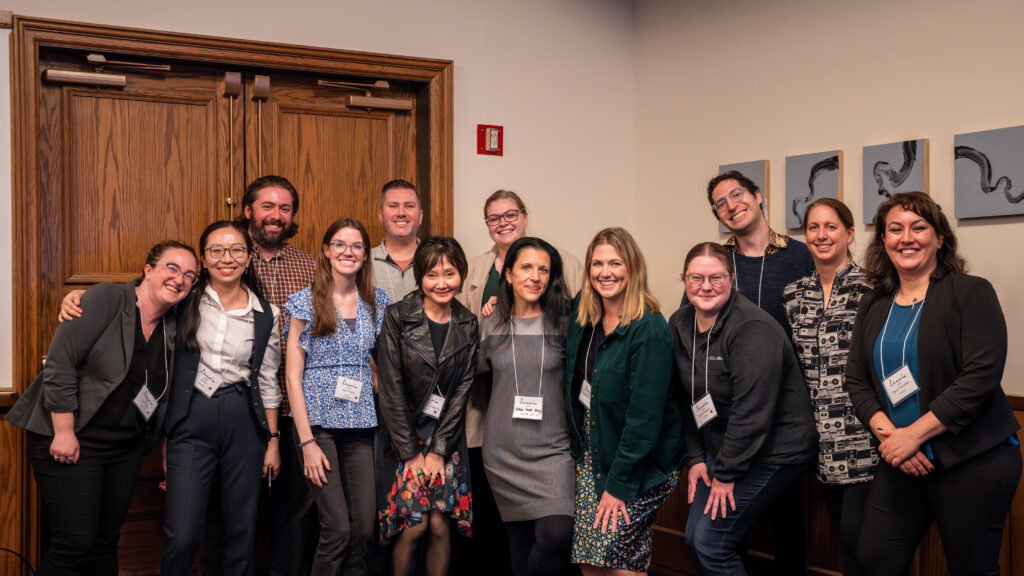
BACKGROUND & MISSION
Established in 2010 by Hansun Zhang Waring, Professor of Applied Linguistics at Teachers College, LANSI provides a space for individuals at all stages of experience to come together and engage with one another within the broad field of language and social interaction. Hosting monthly virtual data sessions open to the public, the group invites scholars from anywhere to partake in fruitful discussions of naturally occurring data. Beyond these regular data sessions, the annual meeting brings together scholars from all over the world who are interested in various aspects of human interaction. As the founder of LANSI, Dr. Waring was originally inspired by The Center for Language, Interaction, and Culture (CLIC) at UCLA and The Language, Interaction, and Social Organization (LISO) at UCSB, two west coast organizations that alternate sponsoring small conferences that foster in-depth and engaging academic conversations. Waring conceptualized the LANSI conference to be about as intimate as an academic event can be, with a one-room, maximum 100 participant set-up each year. Whether it be in the data sessions, at the conference, or through other sponsored academic events, one truly energizing aspect of LANSI gatherings is that budding scholars get the chance to engage in dialogue with and learn from more established scholars, thereby creating an experiential, mentorship environment wherein the most effective education can happen.
LANSI 2023
LANSI brings together researchers whose work falls within the broad scope of language and social interaction. Thus, the call for proposals sought submissions from diverse areas, including conversation analysis, interactional sociolinguistics, linguistic anthropology, language socialization, and critical discourse analysis, among others.
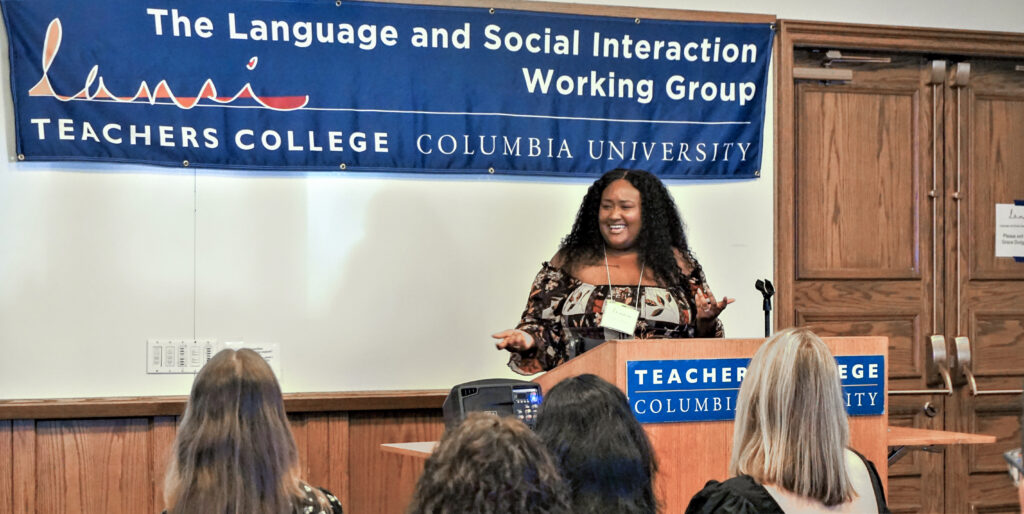
Over the two days of the conference, there were 24 paper presentations and two invited lectures. A highlight of this year was certainly the breadth of research topics, from multi-modal analysis of a children’s book, Facetime calls with grandparents, portrayals of rurality in the news, ESL and ASL instruction, and interactions in government, mental health, or birthing contexts, to name a few. In addition, as part of an endeavor to foster connections and make the event more interactive, the conference committee implemented a newly designed 10-10 presentation format where speakers presented their work for ten minutes and then engaged in 10 minutes of Q&A with audience members. This format turned LANSI into a figurative playground where attendees could play with and engage in in-depth discussions about speakers’ data. While condensing one’s work into ten minutes is certainly a challenge, the conference saw stellar examples of speakers who achieved this, and the committee received many positive reviews of the new format. This format opened space for all participants to bring their curiosity and insight and provide speakers with useful feedback and future directions. The LANSI organizing committee is already thinking of ways to perfect the format for 2024. During and after the event as well, several speakers and attendees participated in the signature initiative, Humans of LANSI, where they shared with interviewers what brought them to LANSI and language use research. Quotes from these interviews can be viewed on Twitter/X by searching #Humansoflansi.
In addition to the enriching and inspiring paper presentations on a diverse range of topics, the invited lectures stood out as highlights from the conference. On Friday, Tanya Stivers, Professor of Sociology and Director of the Center for Language, Interaction, and Culture at University of California Los Angeles, presented a talk titled “To err is human but to persist is diabolical: Reproaching departures in social interaction.”
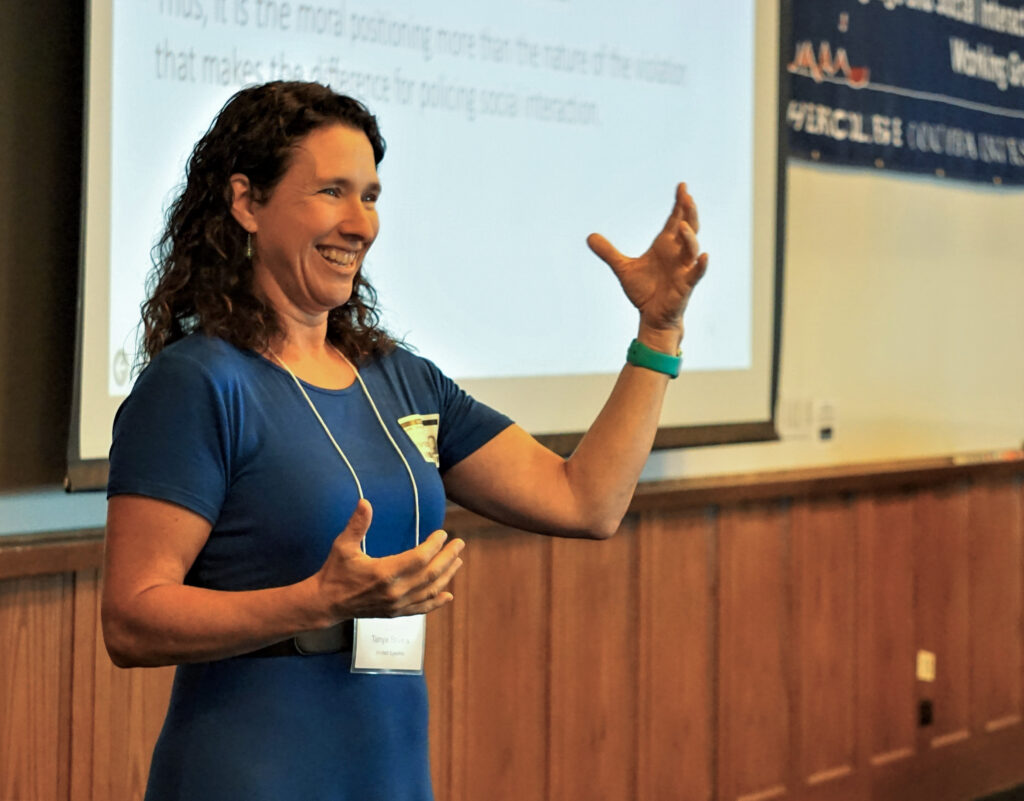
Stivers examined how speakers in conversation reproach violations of unwritten rules as a way to maintain the interaction’s moral order. She found that actors are more likely to reproach violations when transgressors fail to provide accounts, and that actors consider the sequential development of interaction, weakly reproaching initial offenses while strongly policing persistent violations. In this meticulous and thought-provoking study, Stivers offered valuable insights into the nuanced dynamics of interactional policing, emphasizing actors’ moral positioning and their commitment to maintaining the comprehensibility of social behavior.
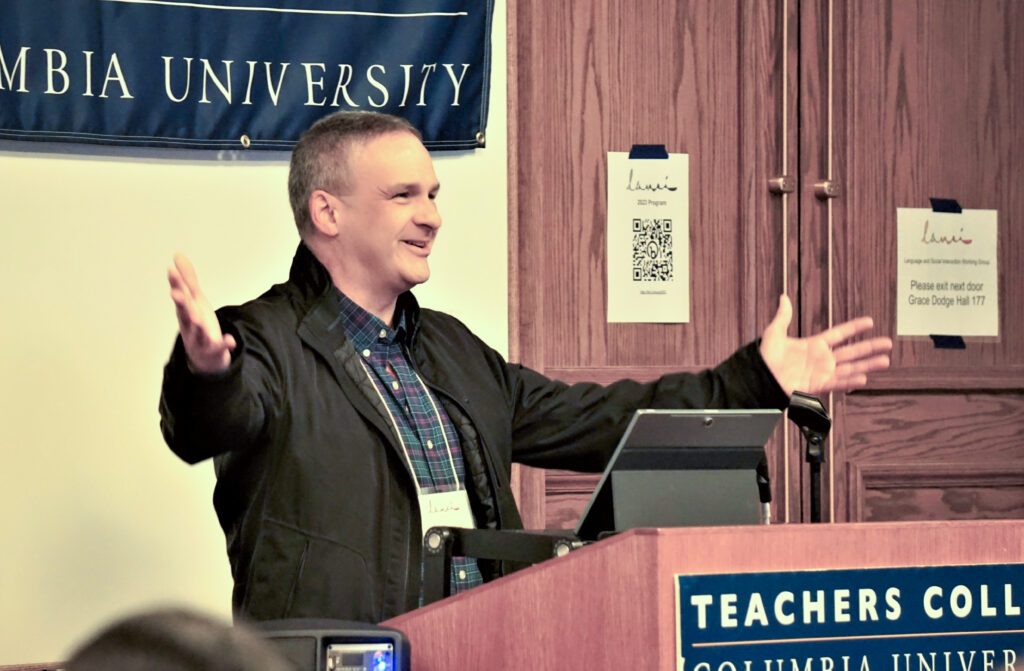
On Saturday, Steven Talmy, associate professor in the Department of Language & Literacy Education at the University of British Columbia, presented a talk titled “CA/MCA for DEI: A case for motivated looking.” Starting with the foundational CA principle of unmotivated looking, Talmy argued instead for the use of “motivated looking” (Duneier & Molotch, 1999; Talmy, 2009).
He explored what CA can offer diversity, equity, and inclusion (DEI) programs as well as what DEI programs can offer CA. Through his lecture, he posed the question of how scholars can utilize CA to investigate social injustice and issues of inequity.
From the invited lectures to the paper presentations, the speakers this year left many attendees with a renewed desire to push the boundaries and to re-approach their work with vulnerability and a fresh perspective. During lunches in Manhattan neighborhoods, the Friday evening reception, and chats during coffee breaks, participants engaged in spirited intellectual exchanges about the theoretical and technical foundations of their research in language and interaction, as well as how to continue to learn and grow within and outside of their scholarly work. We hope that these conversations continue beyond the conference, upholding LANSI’s mission to foster conversations that enrich our understanding of our common research interests, as well as of each other.
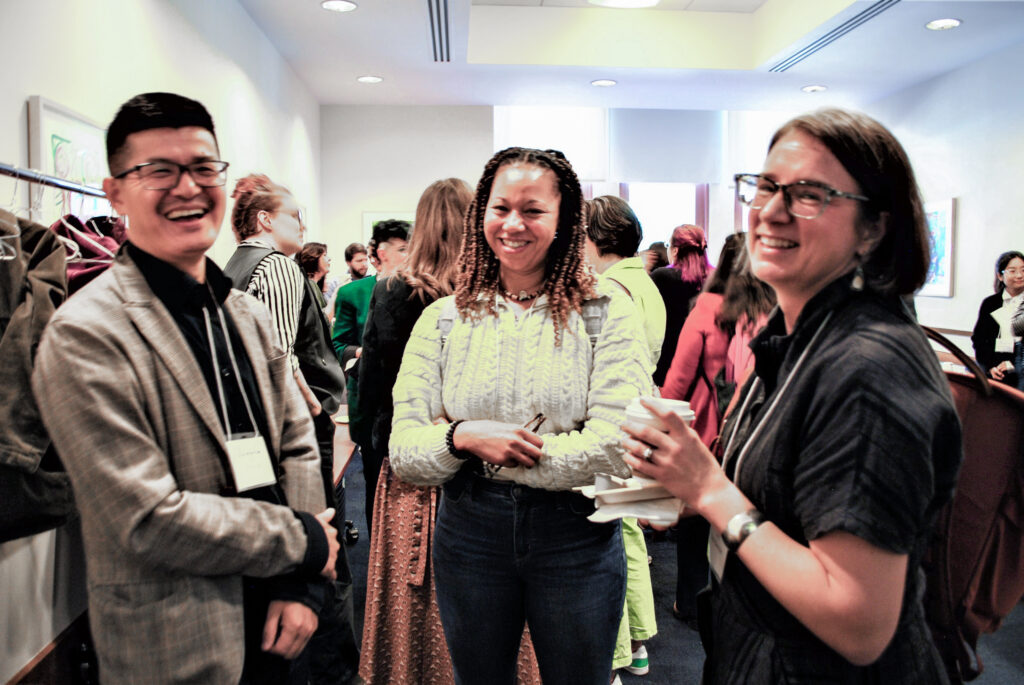
To view the 2023 conference photos, please visit our Facebook page. To learn more about LANSI, visit www.tc.columbia.edu/lansi/. We’re looking forward to LANSI 2024 and we hope to see you there!
